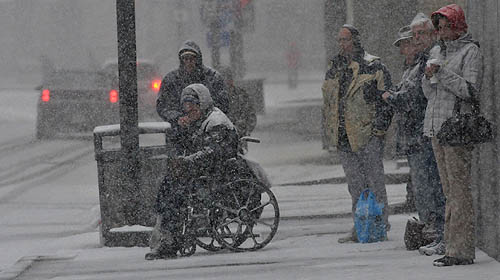Winter is coming, you had better stock up on pierogis!! Pierogi Fest is to be thrown in benefit of a new riverfront park that extends development to the water's edge, and stands in good stead with officers of the peace, modern families and lovers of local cuisine. Dumplings, if you are new; the things which race around the ballpark during the 7th Inning Stretch.
What else is happening...
In a sudden and unexpected gush of not merely sensible government but collaborative government, the City has agreed that if it doesn't meet its 8% investment returns annually it's going to make it up the difference to the pension fund, annually. Now at least one semblance of reality is on the books. But eventually a year will sting us. 8% is an aggressive expectation for stock market speculation. [P-G, Trib]
In further tiny fortunes, the PWSA variable rate bonds or "swaptions" are insured again. [Null Space]
Pittsburgh Mayor Luke Ravenstahl is being silly. [One, Two, Three, Four, @MayorLuke]
Pittsburgh-based robotics entrepreneur John Thornton may be the first human being to exploit the Moon. But not necessarily in a bad way. [The Verge]
And finally, the Post-Gazette endorses Democratic nominee for Pittsburgh City Council District 7 Deb Gross with these words:
This variety of work, over a range of issues and for a broad sweep of constituents, has given her experience with different interest groups and, we hope, skills as a consensus builder.
The Post-Gazette endorses Deb Gross, the candidate most likely to work productively with the city's new mayoral administration on citywide issues.
The editorial made very clear its endorsement hinged most acutely on Gross' tolerant approach to state financial oversight. In a race involving many stated policy similarities among the frontrunners, that makes for one interesting contrast with leading rival Tony Ceoffe -- along with with his calls for hiring 130 more police officers and his alarmed aversion towards shared City / County management of the RAD parks. Is it possible these isolated but obvious contrasts fit together somehow?
Election Day is Tuesday, November 5th. Join us starting this Sunday for #Race4D7Week at the Pittsburgh Comet, and all over the 'Burghonet. We might learn a thing or two!





